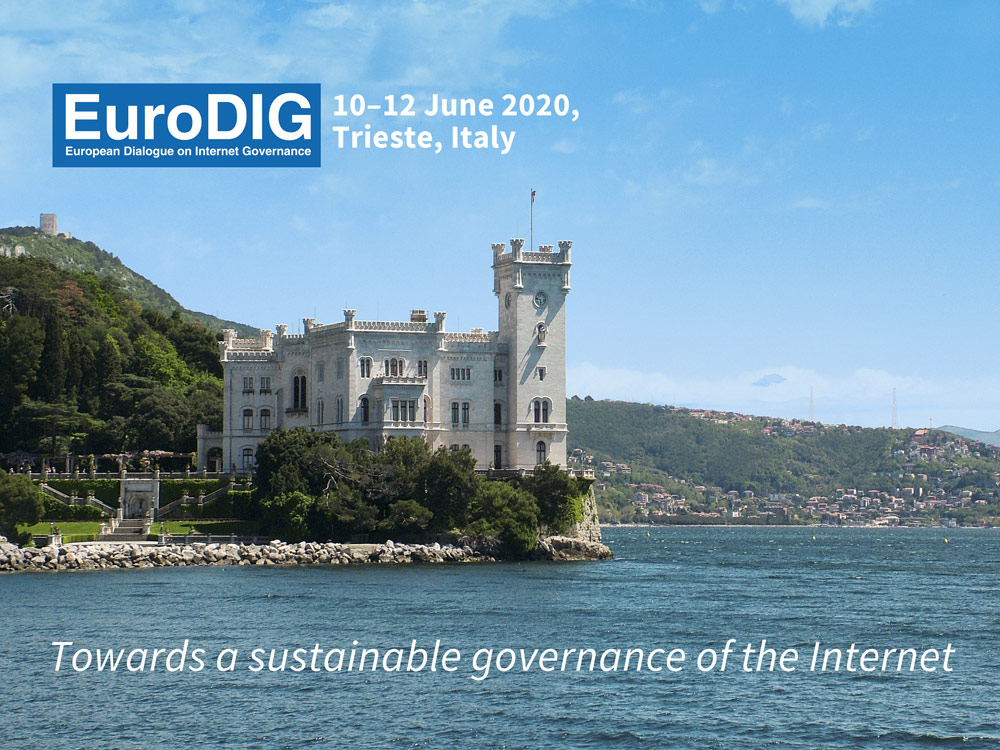Wrap up
12 Jun 2020 18:00h - 18:30h
Event report
The wrap-up session was led by Ms Sandra Hoffreichter (Secretary-General, EuroDIG) and Mr Thomas Schediner (President of the EuroDIG Board). As Schneider explained, EuroDIG 2019 was the first regional Internet Governance Forum (IGF) initiative to discuss the final report of the UN High-Level Panel on Digital Cooperation. Similarly, EuroDIG 2020 is the first IGF to discuss the UN Secretary-General António Guterres’ Roadmap for Digital Cooperation.
Mr Fabrizio Hochschild (Under-Secretary-General and Special Adviser to the Secretary-General) then briefly informed the participants about the launch of the roadmap. COVID-19 has accelerated the adoption of information and communications technologies (ICTs) and highlighted some of the challenges that come with different technologies, as well as the need to manage them more effectively – raising the stakes for digital cooperation. The Executive Office of the Secretary-General and the International Telecommunications Union (ITU) have organised a series of webinars under the theme ‘Digital cooperation during COVID19 and beyond’. The webinar discussions considered issues such as where urgent cooperation is required, for example regarding the connectivity deficit, human rights challenges, and trust and security issues. Global cooperation is necessary to overcome the misinformation pandemic without drastically compromising values such as privacy and freedom of speech. In June 2019, the Secretary-General’s High-Level panel on Digital Cooperation submitted its final report entitled ‘The Age of Digital Interdependence’. Following the issuance of the report, the secretariat reached out in writing to UN member states as well as other entities and organisations, receiving feedback from many of them. Round-table discussions with subject matter experts were constituted to discuss the panel’s recommendations which were broken down further into eight clusters. The eight clusters are included in the roadmap presented by the Secretary-General on 11 June. The report reiterated the Secretary-General’s support of a multistakeholder approach to digital cooperation. The High-Level Panel noted that there was ‘a great deal of dissatisfaction with existing digital cooperation arrangements, a desire for more tangible outcomes, more active participation by governments, and the private sector, more inclusive processes and better follow-up.’ The IGF, regional, and national forums – including EuroDIG – need to be continually upgraded in order to be more responsive and relevant to current digital issues.The roadmap describes the need to consider how to better position the IGF and its work within the broader UN system, and includes a series of suggestions to further enhance it, including by improving the linkages with regional IGFs.
Hoferichter noted that the Geneva Internet Platform’s (GIP) rapporteurs have been participating in the workshops and sessions, taking notes of the discussions, summarising them on the go, and bringing them up to the screen in the form of messages for the participants to find rough consensus on. Hofeichter noted that the messages are the essence of EuroDIG.
The main messages as formulated by the GIP rapporteurs were then highlighted by GIP representative, Ms Andrijana Gavrilovic.
- There is a need for stronger digital literacy, particularly for children, their parents, and teachers, and those who are forced to become part of the digital society by the pandemic, such as the elderly. Digital literacy should be approached in an interdisciplinary manner. Users should be more aware of the inherent risks and taught to think critically, as well as to differentiate between safe and unsafe practices.
- Civil society and governments should participate in the development of Internet standards, though with important reservations. Policy requirements must meet engineering requirements, keep the Internet safe and resilient, and avoid political manipulation. For this purpose, policymakers should have a long-term vision of the digital future and the impact of technologies on social and economic life.
- High-quality trusted news is the best antidote to fake news. To achieve that, there is a need for more reliable funding for public service journalism on the one hand, and the protection of the freedom of the press by national authorities on the other. Crises such as the COVID-19 pandemic should not be an excuse for governments to restrict the freedom of expression.
- The real foundation of digital sovereignty is digital infrastructure, as shown by the COVID-19 pandemic. It is therefore key for the EU to focus on investments in telecommunications infrastructure, reflect on its regulatory frameworks and its actions, and further raise its voice at international fora.
- Trustworthiness should be regarded as a prerequisite for innovation. When addressing it, we shall look at two sides: one that regards the characteristics of a product (i.e. its ethically-relevant characteristics), and one that is related to how trustworthiness is communicated to the people. One solution could be developing a standardised way of describing an ethically-relevant framework of artificial intelligence (AI) systems.
Hoferichter closed the session by thanking the organisers of the Youth School, the EuroDIG Secretariat, focal points, subject matter experts, organisation teams and speakers, the GIP, Caption First, virtual rooms hosts, the ICTP, sponsors and donors, and the EuroDIG Board.
Related topics
Related event

